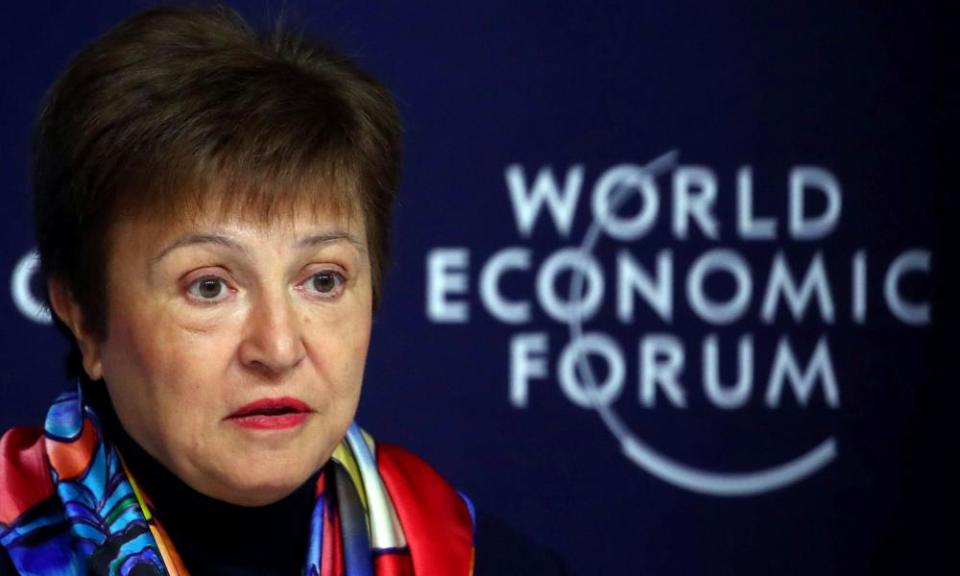IMF downgrades forecast for UK economic recovery

The International Monetary Fund has downgraded forecasts for the UK’s recovery this year while the expansion of the global economy, aided by accelerating vaccine rollouts, is expected to gather pace.
Illustrating the severe impact of the pandemic on the UK economy, the IMF said in its latest forecast that the UK’s national income, or GDP, would expand by 4.5% this year, down 1.4 percentage points from the 5.9% growth forecast made last October.
It follows an estimated contraction in UK GDP of 10% in 2020, the biggest fall of any G7 country.
The global economy, helped in part by improved outlooks in the US and Japan, will recover from a 3.5% fall in GDP in 2020 with growth of 5.5% in 2021, up 0.3 percentage points compared with October’s forecast.
The US economy is forecast to grow by 5.1% in 2021, while Japan’s economy is expected to expand by 3.1%. GDP in the eurozone is forecast to rise by 4.2% this year.
In an update to its flagship world economic outlook, the Washington DC-based IMF said the upgrade in global growth, while modest, reflected an increase in government spending to offset the worst effects of the pandemic and vaccination programmes that were being rolled out across richer nations.
Close to 90 million people were likely to fall below the extreme poverty threshold during 2020–21, the report said.
Kristalina Georgieva, the IMF’s managing director, has urged governments to expand healthcare provision and welfare policies to protect vulnerable groups to limit an expected growing divide between rich and poor during the pandemic.
At the weekend, ahead of the World Economic Forum’s annual summit this week, she said governments must not let the pandemic affect efforts to tackle poverty and the climate emergency.
Speaking to the Guardian, she said: “Building resilience can be good for nature and ecosystems; it can be good for economic growth; at a time when economies have lost low-skilled jobs, it boosts job creation; and the fourth win is that it can bring health benefits [such as reduced air pollution].”
There were risks to the outlook from variants of Covid-19 that could prove difficult to treat and vaccinate against, the IMF said, but other risks had diminished, including the prospect of a no-deal Brexit.
With the Biden administration poised to pump an extra $1.9tn (£1.4bn) into the US economy and Chinese economic growth likely to surge to 8.6% this year, much of it after a huge boost from state-sponsored investment, the prospect for higher growth than predicted last October had improved.
“The upgrade is particularly large for the advanced economy group, reflecting additional [government] support – mostly in the United States and Japan – together with expectations of earlier widespread vaccine availability compared to the emerging market and developing economy group,” the report said.
The UK’s acceleration of its vaccination programme is not expected to give an extra boost to UK growth until 2022 when its growth rate is upgraded by 1.8 percentage points to 5%.
Concerns that inflation is likely to take off over the next 12 months as the recovery gains speed were dispelled by the IMF, which said average prices would not increase by more than 1.5% over the two-year forecast period.
There would be an increase in oil prices and the cost of commodities such as metals, but they would remain below 2019 levels and allow central banks to maintain ultra low interest rates for at least a couple of years.
Global trade would recover by 8% this year before falling back to 6% growth in 2020, largely following a slow recovery in services and especially tourism.
“Services trade is expected to recover more slowly than merchandise volumes, which is consistent with subdued cross-border tourism and business travel until transmission declines everywhere,” the IMF said.

 Yahoo Finance
Yahoo Finance 